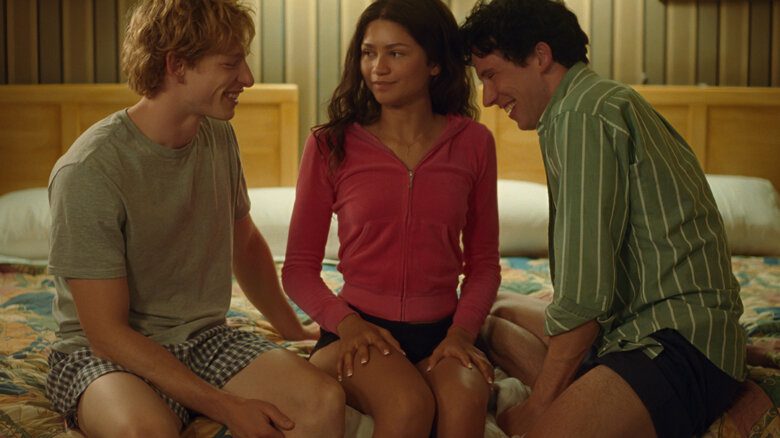With her nude lipstick pressed up against the microphone and her expression twisted in a mischievous, elfin glare, she looks a bit like Kate Blanchett. Her blunted, straw-coloured hair and faux-tuxedo blouse underlines the association.
The similarities end there. Blanchett is a hoarse whisperer, if you’ll forgive the pun, and this woman is nothing of the sort. Her voice has the quality of a tiger pacing its cage, muscular, under control, bigger and more dangerous than it first appears.
She shifts from one foot to the other, singing “I touch her here and there — I know my place. I kiss her open mouth and I praise her beauty, and people call me traitor to my face.”
She is Martha Wainwright, queering one of the classics of Canadian songwriting: Leonard Cohen’s The Traitor. She’s a compelling woman to listen to, and at least as compelling to watch. Here, she’s captured in the 2005 documentary/concert DVD I’m Your Man.
Her performance is at the dark heart of the show. As she slides out of the final coda, the overdubbed voice of Leonard Cohen strains through.
“It’s called The Traitor,” Cohen says. “It’s about the feeling that we have that we’re failing some mission that we’re mandated to fulfill and being unable to fulfill it — and coming to understand that the real mandate was not to fulfill it, and that the deeper courage was to stand guilt-less in the predicament in which you found yourself.”
It’s hardly surprising that Cohen would pen something like The Traitor. It’s hardly surprising he would come to represent on the one hand the ravages of love and on the other hand an in-the-world-but-not-of-the-world cool (which is itself part rock n roll, part Eastern mysticism lite).
I’ve been thinking about Cohen a lot lately, in part because the 74-year-old songwriter is sweeping through Ottawa May 25 and 26 as part of a massive global tour and tickets went on sale earlier this month.
And I’ve been thinking of him, in part, because he’s one of Canada’s sages of sex. Yet too often he’s presented in the media as being ambivalent about sex He seems to simultaneously love and despise it, no?
At my least charitable, Cohen reminds me of anti-sex figures like St Augustine, famous for his debauched youth and subsequent monk-like renunciation of sex. How tidy to think of his life as a biographical call-and-answer, a movement away from hedonism and toward self-restraint (or, perhaps, self-denial).
But that would be too simple, wouldn’t it?
Can we get past thinking that Cohen’s ascetic aloofness was a temporal development after years of tomcatting and understand it instead as being the original state he is moved from? Or more difficultly, that the two exist in tension?
It is tempting to suggest that his raw vulnerability hardened into whatever scab of aloofness later. But can we get over the idea that celibacy is what smooth operators like Cohen “grow up” to? How much tougher to understand it as symbiotic, not sequential?
Certainly, I roll my eyes at The Death of the Ladies’ Man (both the album and the implication to Cohen’s narrative arc). But I do appreciate his contrarian spirit.
“Experience has brought no wisdom,” writes critic Anthony DeCurtis about the 1971 album Songs of Love and Hate. “And the impassioned realms of love and hate seem no more knowable than at the album’s start.”
And yet. And yet…
In I’m Your Man, his baritone speaking voice is full of the cracks and folds of age. And from that vantage, he gently redirects us toward a more helpful understanding of his life and work.
From his eighth decade, he echoes what we, as gays and lesbians, already know. Our lives and our choices are our own. Social expectations — in our case, starting with presumed heterosexuality — are barriers to personal fulfillment and should be fought and withstood.
“The deeper courage,” he says, “is to stand guilt-less in the predicament in which you found yourself.”
Indeed.

 Why you can trust Xtra
Why you can trust Xtra


